Success at the meeting organized by the RIPESS Gender Commission, with more than 300 registered participants.
On 29 January, it was held the intergenerational dialogue ‘And for you, what is care?’ . The first webinar of the year on care and the Social Solidarity Economy was organised by the Gender Commission of RIPESS Intercontinental and in collaboration with Ripess Europe. The objective was to raise awareness and debate the importance of recognising the Care Economy at a global level, highlighting its connection with human rights and the focus of the Social and Solidarity Economy (SSE) model.
The event brought together speakers from different regions, committed to care work in their local contexts, who shared approaches and initiatives that highlight care as a political and social act fundamental to sustaining life.
The event began with an introduction from Sandra Moreno, Secretary General of RIPESS, who highlighted the increased recognition of the relevance of care and the economy that underpins it worldwide, thanks to the historic mobilisation of feminists around the world, especially marginalised groups such as women, racialised communities and migrants. She recalled the inclusion of care in global agendas, such as Goal 5.4 of the 2030 Agenda, which seeks to value unpaid domestic and care work through public services and social protection policies, promoting shared responsibility in the home; and Convention No. 189 of the International Labour Organization (2011) which encourages States to ‘take measures to ensure the effective promotion and effective protection of the human rights of all persons engaged in domestic work’. In addition to the United Nations resolution A/RES/77/281 on the promotion of Social and Solidarity Economy for sustainable development. Finally, she highlighted the intersection between care and territorial dynamics, vital for advancing towards care policies and systems that address the intersectoral dimensions of structural inequalities.
‘Care is a collective responsibility of society as a whole and, therefore, also a public responsibility’
After the opening words, Andrea Rodriguez, from Ripess Europe, introduced the speakers, starting with Daniela Cabrera Salazar, carer and head of communications at Més que Cures, who defended care as a right and exposed the vulnerabilities of racialised migrant bodies and care workers, the importance of a national care system and the link to public policies, such as immigration law.
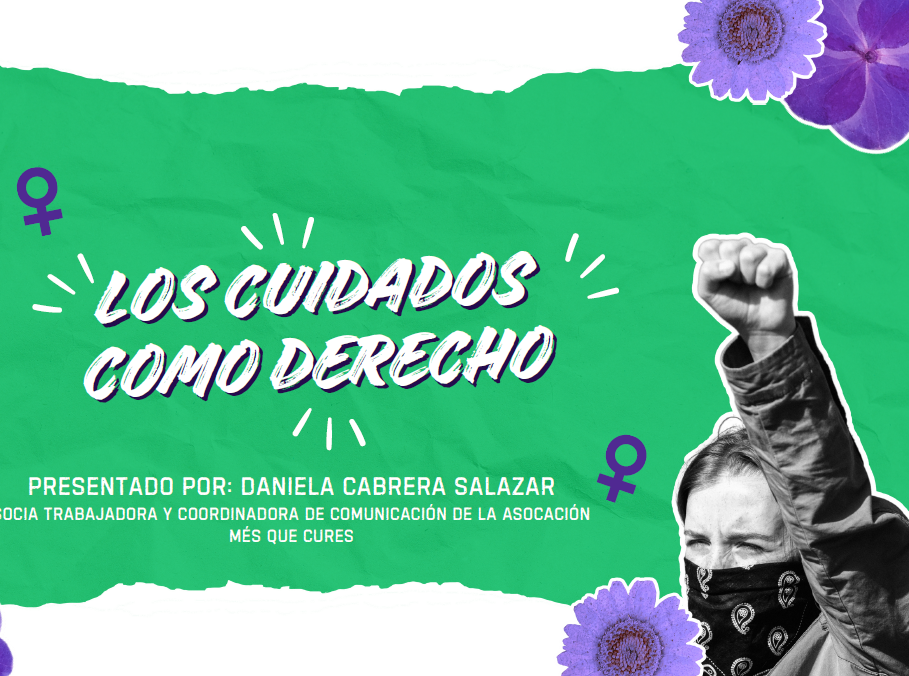
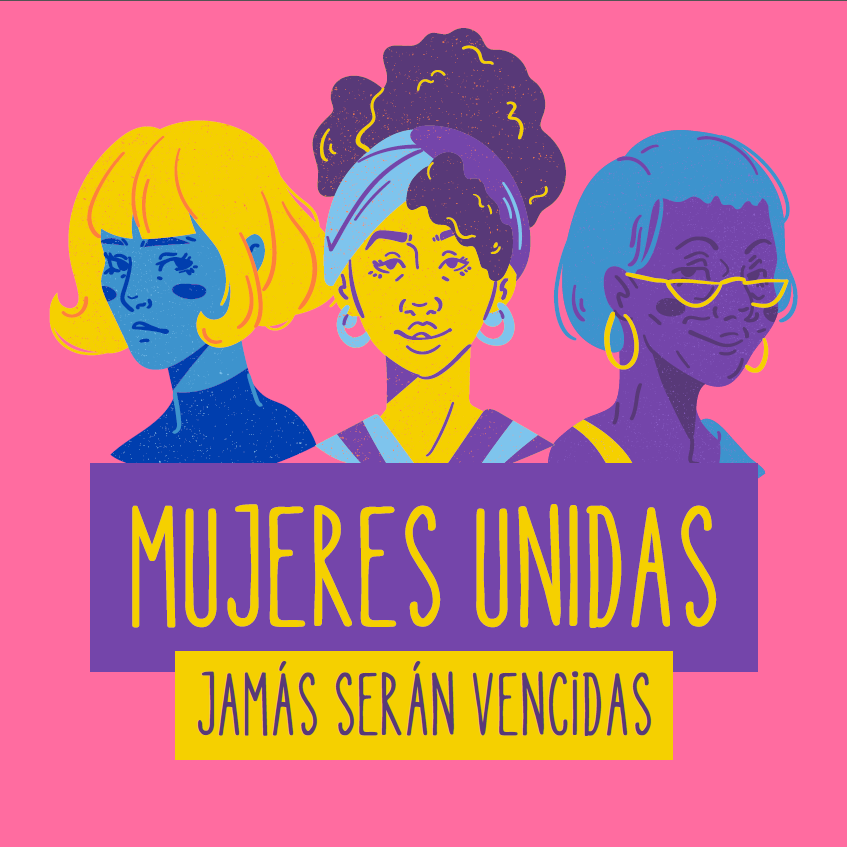
‘To dignify the work of women and care workers and the people who receive these services’
From the perspective of working with indigenous women, Valeska Sarmiento, intercontinental co-coordinator of RIPESS, coordinator of RIPESS LAC, and Cristina Hernández, both from the Association for Agricultural and Business Development, ADAM in Quetzaltenango, Guatemala, called for the dignification of the work of caregivers and care recipients, the importance of integral care systems, circles of care and mutual support, and the increase in the autonomy of women through solidarity-based productive projects, from an SSE perspective.
‘A journey towards women’s self-sufficiency, where every step is an act of care and personal growth.’
The elimination of violence against women and children was highlighted by Firda Ainun, part of ASEC, the Asian Council for Solidarity Economies, and the Rifka Annisa organisation in Indonesia. The organisation, which deals with more than 300 cases a year, carries out activities related to prevention, raising awareness about gender violence and the empowerment of women, through aid programmes that configure a network of care using SSE principles.
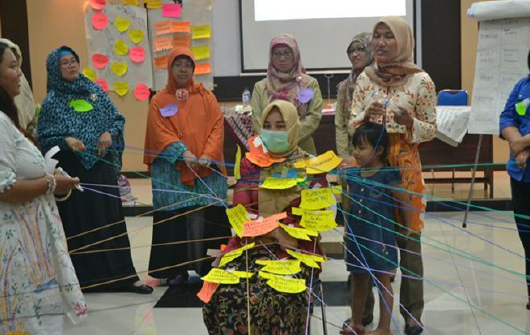
After these presentations, there were special interventions from our allies.
‘Innovative solutions are needed to guarantee childcare in order to reduce gender inequality’
Mohanad Shalabi, national project manager for the International Labour Organization (ILO) in Jerusalem and the Ramallah Office for the Occupied Palestinian Territories (OPT), began by presenting the work of the ILO and the initiative, in English, ‘Cooperative Care Provision as a Gender-Transformative Solution for Decent Work’. The aim is to explore the viability of cooperatives and other SSE entities as a model for providing affordable, accessible and quality childcare services, while enabling the economic empowerment of women and contributing to social welfare in the OPT.
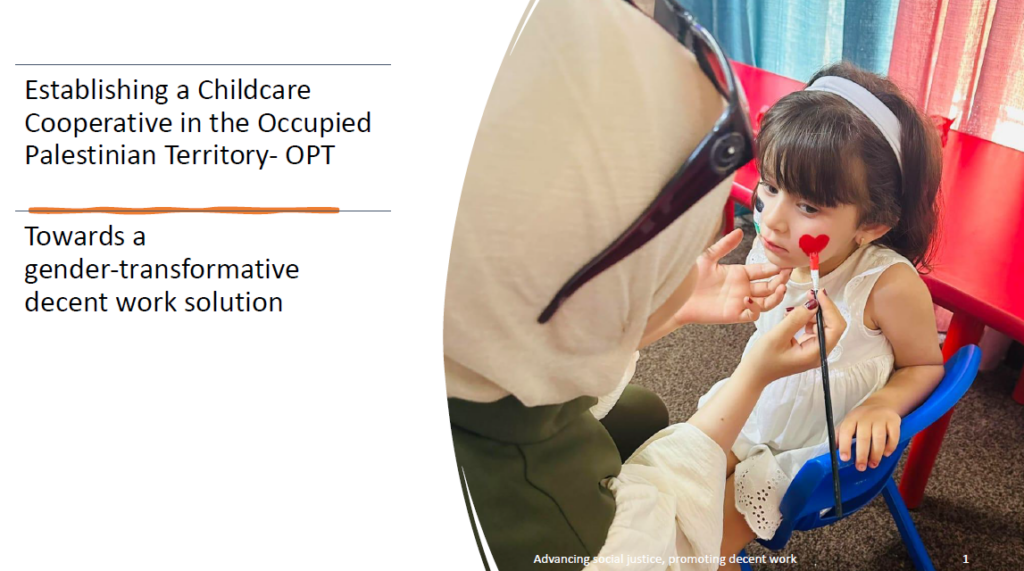
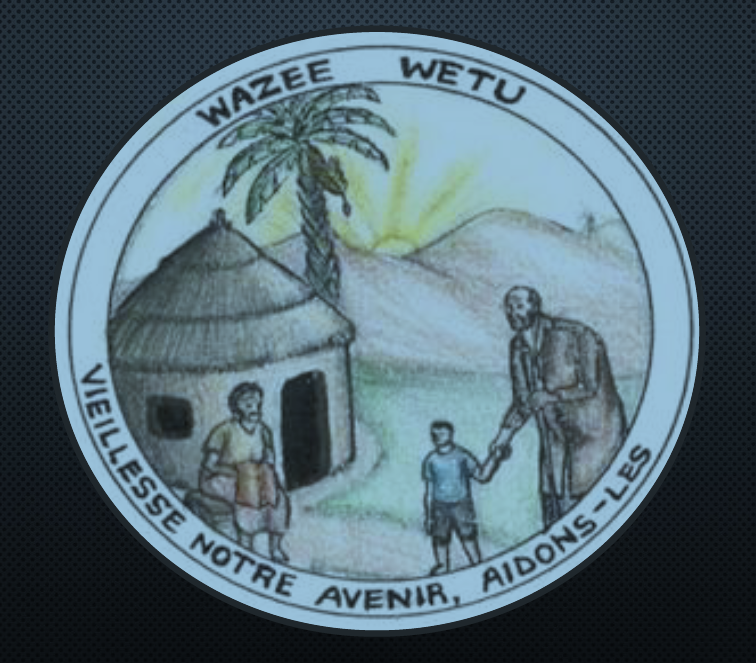
‘Care is an intergenerational practice and dialogue, from young people towards the elderly’
The relevance of care for the elderly and the importance of intergenerational ties was brought up by Christian MUNGUAKONKWA, technical coordinator, who presented the work of the WAZEE WETU Platform ‘WAWE ASBL’ (which means ‘Our Elders’ in Swahili) in the Democratic Republic of the Congo. With a community focus, they promote society’s awareness and consciousness of caring for the elderly, promoting their well-being. They advocate for a community that is truly humane, equitable and inclusive, in which all people feel loved and integrated.
‘Care is essential for the sustainability of life and should be recognised as a shared responsibility between families, communities and the state’.
Finally, Carla Gutiérrez, from the Gregoria Apaza Centre for the Advancement of Women in Bolivia, shared with us the perceptions, demands and initiatives of women in rural environments, where care is considered a central female responsibility, adding to women a multiple burden in the productive, reproductive and community spheres, while rural-urban transformations increase the perception of insecurity.
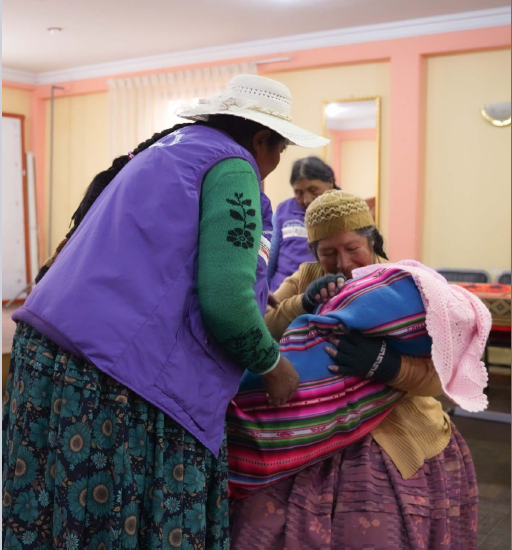
The debate was opened to the public and concluded with a final round where the speakers reflected on the future of care. They highlighted the importance of addressing it collectively, dignifying both those who provide these services and those who receive them, and strengthening self-organisation networks. They also underlined the urgency of innovative solutions to integrate more women into the workforce without the burden of care falling on them alone. Female leadership, especially in vulnerable sectors, is key to sustainability, equity and local economic development. The care economy needs structural support, access to services and the cooperation of various actors. In addition, it is essential to raise awareness among the younger generations about the well-being of the elderly and to strengthen intergenerational ties. Finally, the need for a comprehensive and intercultural approach that guarantees equal opportunities and the commitment of the State in the protection and fulfilment of human rights was emphasised.
We thank all the panellists and participants for the enriching and constructive debate that will serve as a basis for continued effort and discussion throughout 2025 and beyond. Let’s keep up the momentum and continue to join forces to demand the recognition of Care with the perspective of the Social Economy and Solidarity. The next stop is the global campaign for International Women’s Day. Stay tuned! Your participation is essential!





